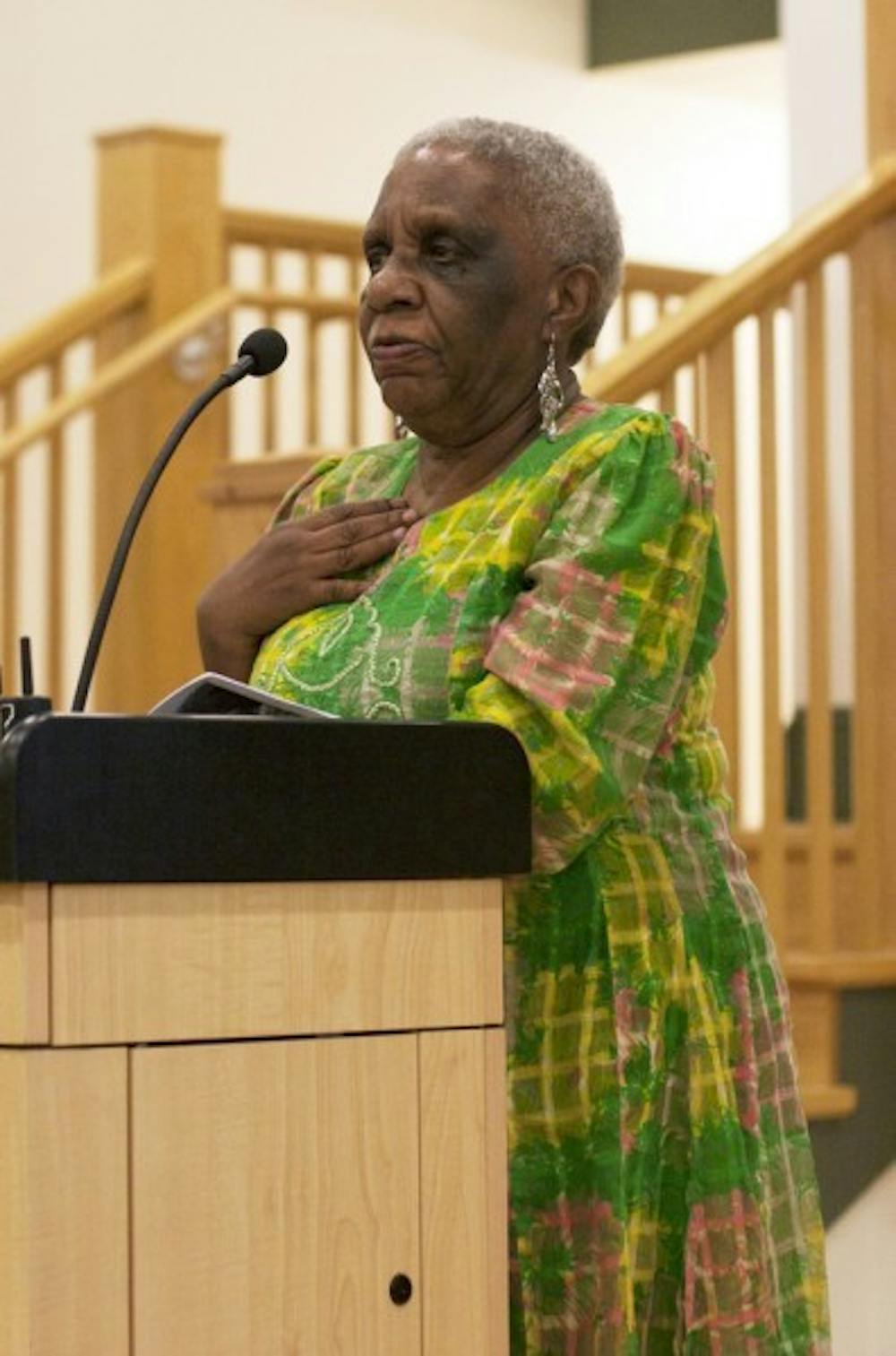Margaret Block's voice filled Ustler Hall as audience members joined her in song.
Block, a civil rights activist, visited UF on Thursday night as part of the Samuel Proctor Oral History Program, an organization which strives to preserve oral history.
After she greeted the crowd twice, demanding a better "good evening" response, Block spoke to the crowd of about 170 people regarding former President George W. Bush, religion and equality.
She sang songs and presented poems about the Patriot Act, justice and the No Child Left Behind Act of 2001.
"One day I was sitting at home, and the FBI called me," Block said, "I almost had a stroke."
Turns out, it didn't have to do with one of her poems she sent the president, but with a cold case from the civil rights movement.
Some students went to the event for class assignments or extra credit.
Daylin Farinas, a 20-year-old political science sophomore, said she attended because she had to write a paper for her race, law and constitution class.
However, she was also interested to hear Block's story because she thinks it's better to hear about the past directly from older generations.
Farinas said she would like to read Block's works in addition to hearing the speech to help her understand Block's journey with the civil rights movement for her paper.
Kim Devitt, a 21-year-old public relations senior, said she heard about Block's speech on civil rights in her sociological and historical foundations of education class. She decided to come to the event because she was excited to hear Block's personal story.
Devitt pointed out that learning about civil rights from a textbook is a totally different experience than hearing it firsthand.
"It's amazing how today we don't struggle with the same types of issues that, say, a 21-year-old did in the ‘60s," Devitt said. "Today I realized on the Sorority Row bus that it doesn't really matter who you sit next to. It doesn't even cross your mind these days."
Margaret Block, a civil rights activist, speaks in Ustler Hall on Thursday night as part of the Samuel Proctor Oral History Program.






